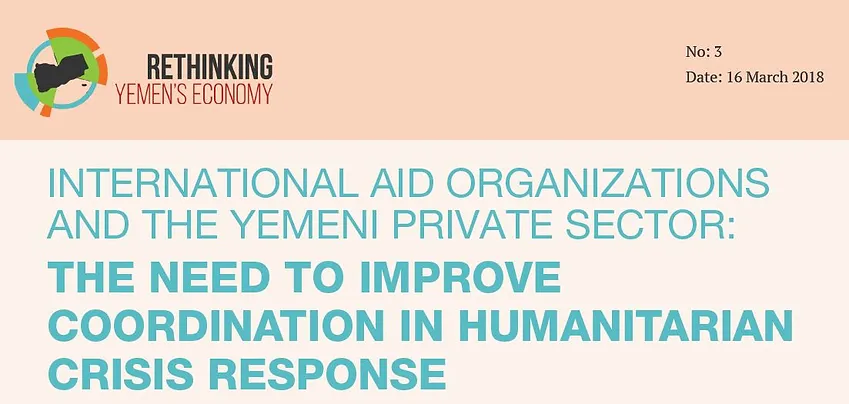The current humanitarian crisis in Yemen has been precipitated by almost three years of civil war and regional military intervention, with the United Nations declaring the country the world’s largest humanitarian emergency in January 2017. At the end of last year the UN Office for the Coordination of Humanitarian Affairs (OCHA) released its 2018 Humanitarian Needs Overview (HNO) in which it reported that roughly 22.2 million Yemenis were in need of some kind of humanitarian protection or assistance, of which 11.3 million were in acute need. This included 17.8 million Yemenis who were food insecure, of which 8.4 million were severely food insecure and at risk of starvation. Some 16 million people were without access to safe water and sanitation; 16.4 million had limited or no access to healthcare, with almost half of the country’s hospitals and clinics essentially out of operation. Both the lack of clean water and limited health care have in turn helped catapult the number of suspected cholera cases in Yemen to more than 1 million. As of December 2017, more than 1,800 schools were damaged or destroyed, which, compounded by three quarters of public school teachers going unpaid for more than a year, had left roughly 2 million children out of school.
The humanitarian crisis in Yemen is immense and complex, involving a vast array of interrelated and overlapping factors. What is clear, however, is that while international humanitarian actors have been dramatically scaling up operations to address this crisis since 2015, it is overwhelmingly the Yemeni private sector that has stopped the dire situation from being unfathomably worse. Yemeni business owners – in facilitating everything from imports, to transportation logistics and cash aid distributions – have prevented the country from sliding into mass famine. Private sector businesses have similarly offered a measure of relief from state collapse, which has been precipitated by the evaporation of government revenues and suspension of most public sector operating expenditures, such as salaries for most of Yemen’s 1.2 million civil servants.
